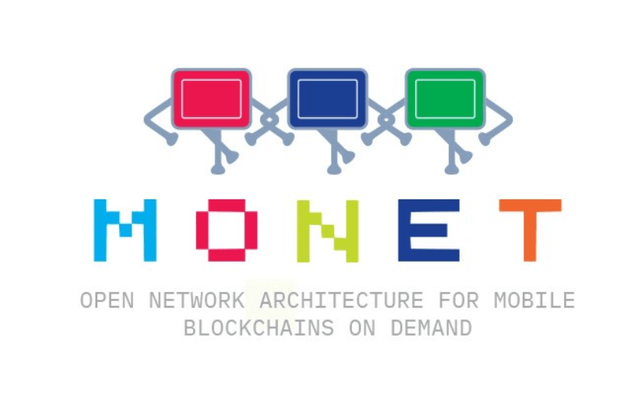
When several computers are interconnected, but no computer occupies a privileged position, the network is usually referred to as a peer-to-peer network. In this type of network, every computer can communicate with all the other machines on the network, but in general, each one stores its own files and runs its own applications. With a client-server network, one or more servers will perform critical functions on behalf of the other machines (the clients) on the network. These functions might include user authentication, data storage, and the running of large, shared, resource-intensive applications such as databases and client relationship management (CRM) software. Typically, both peer-to-peer and client-server networks rely on a shared Internet connection for access to external resources of these basic network structures.
The advantages of peer to peer network are as follows:
- The main advantage of peer to peer network is that it is easier to set up
- In peer-to-peer networks, all nodes act as a server as well as a client, therefore, no need of a dedicated server.
- The peer to peer network is less expensive.
- Peer to peer network is easier to set up and use this means that you can spend less time in the configuration and implementation of peer to peer network.
- It is not required for the peer to peer network to use the dedicated server computer. Any computer on the network can function as both a network server and a user workstation.
The disadvantages of peer to peer network
- A computer can be accessed anytime.
- Network security has to be applied to each computer separately.
- Backup has to be performed on each computer separately.
- No centralized server is available to manage and control the access of data.
- Users have to use separate passwords on each computer in the network.
- As with most network systems, unsecure and unsigned codes may allow remote access to files on a victim's computer or even compromise the entire network
Peer-to-peer file sharing pretty much began with torrents. They are a type of file sharing protocol specializing in larger file downloads. The way torrents are encoded make it easier to download a large file, and even reputable resources are beginning to use them to make downloading files easier for users.
Torrent downloads are basically downloading from multiple personal computer systems, simultaneously, and combining data at the end to form the file you were looking for. Problem is, that it's WAY too easy to attach things to these files, and they just get swept into this whirlwind of information, broken apart and can easily invade your system after they're reconstructed INSIDE YOUR COMPUTER, behind your firewall. After that, it's just whether or not you have a good virus scanner that can detect it.
IP tattlers are a pain too, in that once you download something and activate it for the first time, it sends information to the watcher program containing the IP address of the computer you were using and where it was downloaded from. These watchers are paid by software development companies to bust people downloading non-free-to-play software.
One of the most asked question in this situation is, what am I suppose to do to use this awesome P2P technology?
This is where Monet Network comes into play.
What is Monet Network
MONET Network is building a public network architecture based on mobile ad hoc blockchains. The project’s goal is to bring blockchain to mobile applications, where users can coordinate themselves without delegating full responsibility to centralized third parties. The founders believe that the Monet ecosystem will ultimately empower a sharing economy that is void of expensive, centralized third-party facilitators that users are required to trust with the security of their data and information.
MONET is an open network architecture for mobile blockchains on demand. A blockchain on demand means that participants of a certain activity can form a temporary network for the duration of their interaction without a need of any centralized third party.
About Monet Project
Monet’s vision is to develop a system that does not rely on a specific server but is designed for mobile apps where the users can connect with each other for the length of time to accomplish the tasks that they need, without the constant presence of a third party mediating every single interaction.
In another word, the MONET Network — an open network architecture for mobile ad hoc blockchains — enables groups of individuals involved in common tasks to form temporary connections, or networks, by using their mobile devices to coordinate themselves. This all takes place devoid of the need to rely upon third parties to handle their data. By creating an infrastructure for distributed mobile p2p applications, Monet is attempting to bolster the sharing economy by deploying blockchains to mobile.
Use Cases of the Monet Project
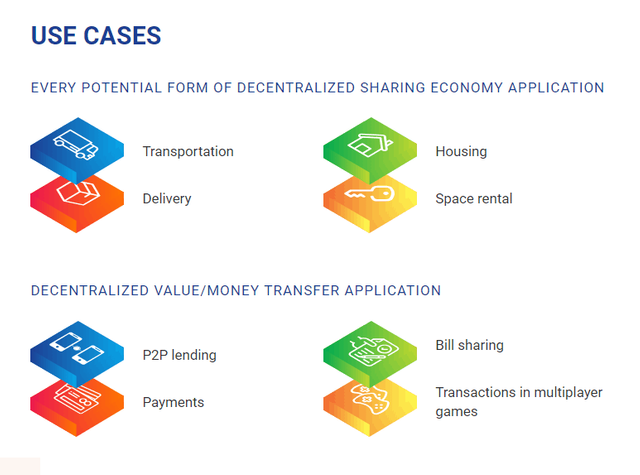
There are many different ways that mobile ad hoc blockchains can be applied to real life user interactions: delivery, housing, office space, payments and loans, professional and personal services, pre-owned goods and custom products, networking, and learning, etc.
Transportation: Monet could enable a fully decentralized Uber that would cut out the expensive service provider intermediary via ad hoc blockchains.
Finance: Monet could allow for the creation of sharded cryptocurrencies, where the shards are mobile. Groups of individuals could withdraw funds from the main ledger, deposit into a temporary ad hoc blockchain, transact exclusively among themselves and then return to the main ledger.
Gaming: Monet could provide a free framework for game developers to connect with a network of users already equipped for p2p coordination, eliminating the need for a centralized server to coordinate multiplayer game participants.
Features of Monet
The Monet Network counts with a master blockchain called MONET hub. The hub is a smart contract platform and uses a Proof of Stake consensus mechanism. It provides infrastructure services for applications on the network. Nodes run an instance of the Ethereum Virtual Machine. Monet is providing an open source software development kit (SDK) which allows external developers to add blockchain consensus to their applications.
Monet enables peer to peer ad hoc networks. Such mobile ad hoc networks are formed by small, local groups involved in a common activity. They may stop to exist once the activity is accomplished. Services can be exchanged among peers such as ridesharing, hosting or gaming.
Monet uses the Babble software, which is a modular, open-source, Byzantine fault-tolerant blockchain developed by Mosaic Networks. The founding team of Babble and Monet is identical.
Technological Strength of Monet
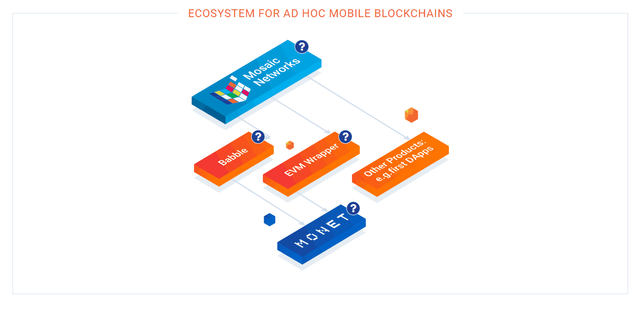
- Babble This powerful consensus mechanism takes advantage of an asynchronous DAG protocol, combined with the benefits of a blockchain’s linear data structure in order to achieve: low latency, high throughput, fault-tolerance and pluggability. Babble-powered blockchains can seamlessly interface with any application, and communicate with other blockchains via Inter-Blockchain Communication protocols.
- Babble SDKs This is what makes it easy for Babble to broadcast messages directly to other network participants, and come to a consensus on an order of events. This function allows the MONET.network to replace centralized servers.
- Monet Hub The first of its kind and a unique type of blockchain in the Monet ecosystem. It is an always-on network that enables inter-blockchain communication.
- Babble Core The core of Babble is based on an asynchronous, Full Information Protocol, which like all FIPs involves three operations: 1) Gossiping and constructing the Communication Graph, 2) Determining which events will eventually be common knowledge, 3) Sorting events with a deterministic function.
- EVM-Babble A wrapper around the Ethereum Virtual Machine that is specifically designed to plug into Babble.
TENOM Token Usage
TENOM is the name of the native token in the Monet ecosystem. Ad hoc blockchains and Monet Hub users are paying TENOM tokens to the Validators. On the other hand, Validators are required to stake TENOM tokens for the right to secure the Monet Hub. Delegators may support Validators and stake tokens for them and in return receive some of the Validator’s reward. As usage of the Monet platform increases so will the market capitalization of the TENOM token.
Monet Team
The Monet core team consists of three members.
Martin Arrivets is the CEO and co-founder of Mosaic Networks. He counts with five years of experience in software development and holds a Master Degree in Mathematics from the University of Chicago.
Giacomo Puri Purini is the CFO and co-founder of Mosaic Networks. He holds a Master Degree in Mathematics from Columbia University.
Kevin Jones is a software developer at Mosaic Networks with eight years of previous experience in software development.

Monet Advisors
Among the advisors of Monet is Mark Stuart Day, a researcher and blockchain author with several patents, Mauro Martini, a professor in Boston, Ronan Lynch, an early blockchain pioneer, and Abdi Hersi, who has a background in asset management and private equity.
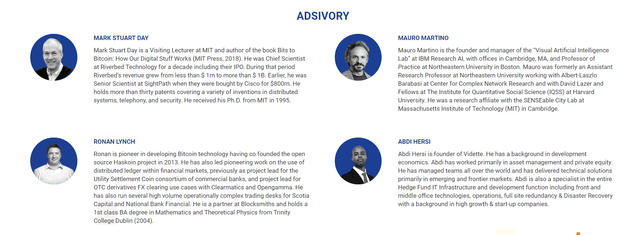
Roadmap of Monet
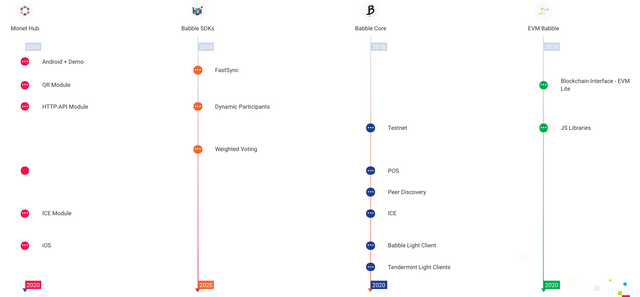
ICO Metrics
Monet Team did not release any token metrics yet. So that we should wait for them to release their ICO Metrics information.
Useful Links
- Monet Network Website: https://monet.network/
- Monet Network Whitepaper: https://drive.google.com/file/d/1PcI69i_oJpWdsIsOciLliYEsFv9hHCVr/view
- Monet Network Github: https://github.com/mosaicnetworks
- Monet Network Telegram: https://t.me/MonetNetwork
- Monet Network Twitter: https://twitter.com/MonetNetwork
- Monet Network Reddit: https://www.reddit.com/r/Monet_Network/
- Monet Network Medium: https://medium.com/@monet.network
- Monet Network Facebook: https://www.facebook.com/MonetNetwork
- Monet Network Bounty: https://medium.com/monet-network/announcing-monet-bounty-campaign-2de1663080ee
Hi! I am a robot. I just upvoted you! I found similar content that readers might be interested in:
https://www.facebook.com/notes/safe-surfing-rakshit-tandon/how-to-be-safe-with-sites-like-torrent-etc/440860102603758
Downvoting a post can decrease pending rewards and make it less visible. Common reasons:
Submit